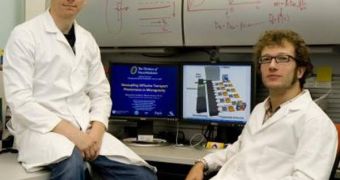Experts at the Houston-based University of Texas Health Science Center (HSC) will have the honor of having their nano-fluidics experiments being ferried to orbit aboard NASA's delivery systems. The deal states that SpaceX Falcon 9 rockets and Dragon spacecraft, blasting off from the Kennedy Space Center, a part of the Cape Canaveral complex, will carry a small box containing the experiments in future missions. The HSC team, led by nanomedicine Division Director Mauro Ferrari, PhD, won the Microgravity Research Competition that allowed them the slot.
The highly complex nano-fluidics experiments will be entirely automated. Outside the box, sensors will determine when the spacecraft carrying the experiment has reached microgravity, and will signal to an onboard computer, letting it know that it's time to start working. Ferrari's Senior Research Assistant Alessandro Grattoni, who is also the experiment project manager, said that the tests were designed to assess the diffusion of micro nanoparticles through tiny channels, just millionths of a meter in diameter.
“I am delighted with this historic opportunity to perform research in space and bring back the results to Earth to improve health care. This experiment will allow us to refine our technologies for the release of a drug at the right time and to the right place in the body, and to bring to the clinic the vision of personalized medicine,” Ferrari shared.
“World class experiments from The University of Texas Health Science Center at Houston teamed with the first cost effective laboratory in outer space from SpaceX will begin a new era of medical research for the 21st century. The commercial and health benefits to all of us will be immense,” a trustee of the Heinlein Prize Trust, Art Dula, added. He shared that the HSC team also received $25,000 in prizes, as well as a free trip to Cape Canaveral, to witness firsthand the launch of their experiment.
Assistant Professor Xuewu Liu, PhD, post doctoral fellows Arturas Ziemys, PhD, Daniel Fine, PhD, and Enrica De Rosa, PhD, also participated in the experiment, which was dubbed “Decoupling Diffusive Transport Phenomena in Microgravity.” With the conclusion of their experiment, the experts hope to gather sufficient data to devise brand new cures for a variety of illnesses, even including cancer.

 14 DAY TRIAL //
14 DAY TRIAL //